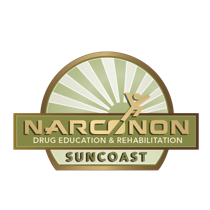Health Insurance Companies Purposely Creating New Addicts

Reading the title of this article, even though I’m the one who wrote it, made my stomach hurt. Right now, it’s no secret the United States is in the midst of a giant opiate problem. There’s enough news about mass overdose events, fentanyl-laced drugs and the increasing need for Narcan, it can make a person’s head spin. You’d think at this point we, as a society, would start doing something about the problem instead of just adding more fuel to the fire.
But apparently, you’d be wrong, wrong, wrong.
Instead of making it more difficult to obtain highly-addictive opiates, some health insurance carriers are making it easier to get them… the polar opposite of what we need. These companies are making the more addictive substances easier to obtain for policyholders, rather than paying for less-addictive options. These insurance companies are not only helping to perpetuate the current problem we have, but they’re also setting the stage for new addictions to be formed and create the next pill addict, the next heroin junkie and the next addict to lose their life.
According to the New York Times and ProPublica, which is a nonprofit investigative journalism organization, health insurance carriers are restricting patient access to less addictive pain relievers, while making highly addictive opiates widely available to them. The New York Times and ProPublica looked over Medicare prescription drug plans and found only 1/3 of the people covered in the second quarter of this year had access to less-addictive painkillers and were required to get prior approval for the drugs, while the rest of the covered patients had relatively easy access to more common opiates, which required no prior approval to fill. Also, the reason insurance companies seem to be doing this is because it’s more cost-effective for them since traditional opiates are cheaper in comparison to the safer drugs. So basically, insurance companies would rather save money than save lives. They’d rather get rich quick and who cares if people get addicted to the drugs they cover… at least they’ll have a “customer for life,” albeit their life might not be very long.
United Healthcare, which is the nation’s largest health insurance carrier, places morphine on its lowest-cost drug tier and requires no prior authorization to get, while less-addictive medications like Lyrica or Butrans are placed the most expensive tier and the company requires its patients to try other (more addictive) medications first before they’ll approve to pay for them. Twenty percent of patients who receive an initial 10-day prescription for opioids will still be using the drugs after a year, according to a study by the CDC. One patient and policyholder of OptumRx said that he received a letter from the insurance company after taking Butrans, asking him to consider a “lower cost alternative,” such as OxyContin or morphine.
You know what’s even crazier than the above? The fact that after the health insurance companies restrict a patient’s access to less-addictive drugs and they get hooked on the more addictive ones, the health insurance company will then restrict their access to drug rehab or flat-out refuse to pay for it.
Am I the only one that thinks this is crazy?!
They get you hooked and then refuse to help you. What is going on here? I don’t even think I have words for this. We just need to choose to not take the drugs that are forced on us by doctors, insurance companies, and pharmaceutical sales reps.
It's essentially our choice, anyways.
They’re not forcing the drugs down our throats. We’re the ones choosing to take them…
Sources Used:
https://www.nytimes.com/2017/09/17/health/opioid-painkillers-insurance-companies.html

